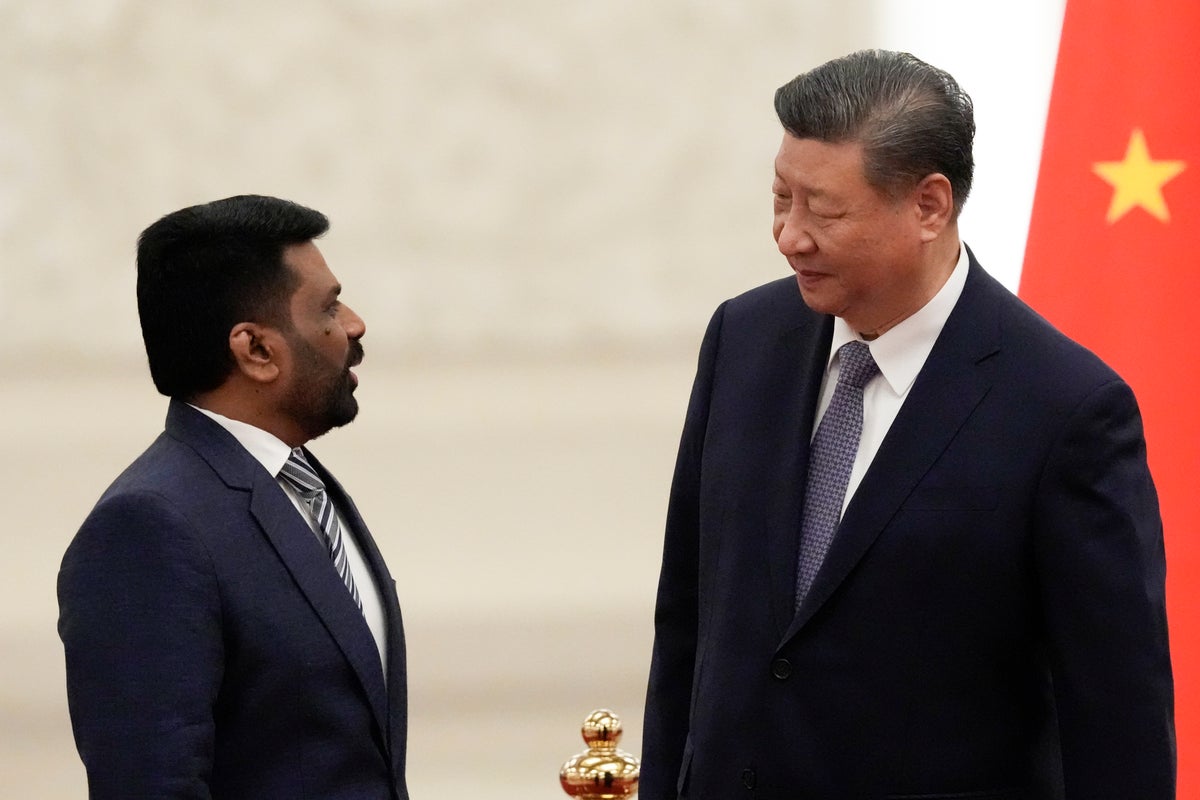
Sri Lanka's Marxist-leaning President Anura Kumara Dissanayake held talks with Chinese leader Xi Jinping on Wednesday, a month after visiting India on his first overseas trip since winning election in September.
The support of the two regional powerhouses — and rivals — is crucial for Sri Lanka to emerge from its worst economic crisis in decades, which led to political upheaval and paved the way for Dissanayake to come to power.
China was once seen as having the upper hand in Sri Lanka through its huge loans and infrastructure investments. While China remains the country's largest bilateral lender, Sri Lanka's economic collapse provided an opportunity for India, which stepped in with massive financial and material assistance including food, fuel and medicines.
For years, China has been trying to expand its influence in Sri Lanka, an island off India's southeast coast that the government in New Delhi considers part of its strategic backyard. Dissanayake’s visit to the Chinese capital can be seen as an effort to navigate the rivalry between India and China, which his party traditionally has leaned toward.
In New Delhi last month, Dissanayake met Prime Minister Narendra Modi and said he would not allow Sri Lanka to be used in “a manner that is detrimental to the interest of India.”
Sri Lanka declared bankruptcy in April 2022 and suspended payments on $83 billion in domestic and foreign loans as a foreign exchange crisis led to severe shortages of food, medicine, fuel and cooking gas, along with hours-long power cuts.
China’s support is vital for Sri Lanka to restructure its external debt. China accounts for about 10% of Sri Lanka’s loans, more than Japan or the Asian Development Bank.
Sri Lanka borrowed heavily from China over the past decade for infrastructure projects including a shipping port, airport and a city being built on reclaimed land. The projects failed to earn enough revenue to pay off the loans, and Sri Lanka leased the port in Hambantota to a state-owned Chinese company in 2017.
The country's crisis was largely the result of economic mismanagement combined with the COVID-19 pandemic, which along with terrorist attacks in 2019 devastated its tourism industry. The pandemic also disrupted the flow of money sent home by Sri Lankans working abroad.
___
Mallawarachi reported from Colombo, Sri Lanka.







